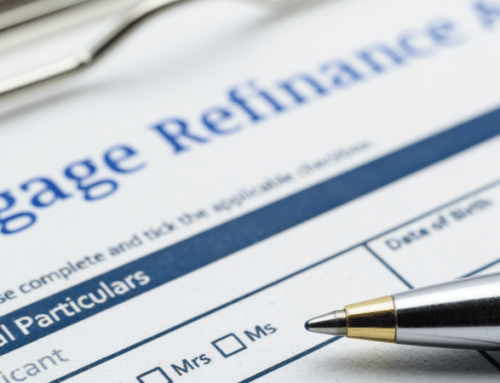The process of applying for a loan means carefully analyzing your financial situation, the kind of risks you like to take, and how long you expect to be in your new home.
Here are some of the important decisions you’ll have to make at the time of application.
- What type of mortgage should you choose? At the time of application, you’ll have to decide which type of mortgage is right for you: Fixed-rate, adjustable-rate, or a hybrid. The type of mortgage you choose depends on two factors: How long you plan to stay in the house and how much risk are you willing to take?
You’ll have to decide if you’re the type of person who likes little risk (fixed loan would probably work well for you), some risk (a two-step loan like a 7/23 or 5/25 might be the ticket, or a 7-year balloon, or a lot of risk (ARMs–adjustable-rate mortgages–are a good choice, and they even have built-in caps on how high the interest rate can jump each year and over the entire life of the loan).
- Should you float the rate or lock in? When the lender asks you this question, he or she is really asking if you want to lock in at the current rate, or take a gamble that interest rates will drop a bit before you close on the loan.
Here’s how the float option works: Let’s say you go in on Monday and fill out an application. The rate for a 30-year fixed loan is 8 percent. You’re scheduled to close in two months. You think interest rates are going to drop in the next 60 days, so you opt to float your loan, meaning that at any point in the next 60 days you can call to lock in the rate. If rates drop, you’ll get the lower rate. But if rates go up, you’ll have to pay the higher rate.
If, however, you think that mortgage rates can’t possibly go lower than they are before you’re scheduled to close, then it’s in your best interest to lock in the rate of your mortgage. That means, whatever the mortgage rate is on the day you make the application, that will be the interest rate you pay on your mortgage.
- How long should you lock the rate? When you apply for a loan, the mortgage rate offered by the lender is only good for a specific amount of time, usually 30, 45, or 60 days. You need to decide how long a rate lock you want to pay for. Remember, the longer the lock, the more you’ll pay.
Lenders will rarely offer to hold a lock for longer than 60 days. The reason is that interest rates change several times each day. With that much activity, it’s difficult for lenders and investors to predict how much interest rates will change over the course of three months. To protect themselves, they limit the length of lock-ins.
- How many points, if any, do you want to pay? Most first-time borrowers don’t realize there is an inverse relationship between the number of points (a point is one percentage point of the loan amount) you pay and the interest rate you receive.
You may have to pay some points or fees, but the more points you pay, the lower the interest rate. If you pay no points up front, you’ll have a slightly higher interest rate, and pay more over the life of the loan.
Points are paid in cash (usually tough for first-time buyers to come by) at the closing, but the federal government allows you to deduct them from your income taxes during the year of the closing. Or you can amortize your points (pay them over the life of the loan) which will ultimately increase your rate.
Why pay additional points? Let’s say you decide to close on your home in November. That means you’d only have one month’s worth of mortgage interest to deduct in that year. However, if you decide to pay three or four points in cash at closing, you would have more to deduct for the year, and could maximize your deductions.
I’m often asked if you can deduct points paid in a refinance. The answer is, unfortunately, no. You must amortize the points over the life of the loan and deduct a portion of points each year. However, if you refinance your loan, say, in five years, you may deduct any remaining points in the year you refinance, potentially giving you a nice deduction for that year.
June 28, 1999.






Leave A Comment